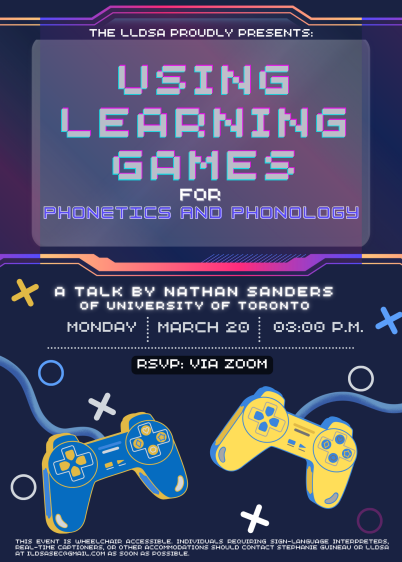If you said yes, you're in luck as Sanders will be giving an online talk to the Linguistics and Language Development Student Association at San José State University on this very topic! This will be taking place March 20th at 6:00pm EST. Please register to get the Zoom link.
Read over his abstract to understand why this will be such an exciting talk! 🤩
Research shows that students perform better in courses when they take part in active learning, which involves activities or discussions in class that engage them in the process of learning, rather than traditional lectures that require them to passively listen (Hake 1998, Freeman et al. 2014, Michael 2006). However, many instructors may still be reluctant to introduce active learning into their courses for various reasons (Henderson and Dancy 2007, Deslauriers et al. 2019). Educational games have long been known to be useful ways to reap the benefits of active learning, by increasing student engagement, participation, and ultimately, performance (Cruickshank and Telfer 1980, Lepper and Cordova 1992, Sugar and Takacs 1999, Massey et al. 2005, Ritzo and Robinson 2006). Furthermore, games can be easy to implement in the classroom, sometimes requiring little more than pencil and paper or minimal adaptation of existing games, alleviating some of the difficulties instructors have with introducing active learning. Phonetics and phonology are particularly well-suited for adaptation to games, especially matching games, because they involve multidimensional structures allowing for many different ways of dividing up important concepts into meaningful groups of matching elements (the IPA, phonological features, etc.). In this talk, I present a few examples of educational games I have used in my courses for phonetics and phonology content, with discussion of the design principles that underlie the games to help other instructors understand how best to design and adapt their own games.
This talk is based on some of his work done with Danielle Daidone (University of North Carolina Wilmington). Be sure to check out the full paper as well!


No comments:
Post a Comment